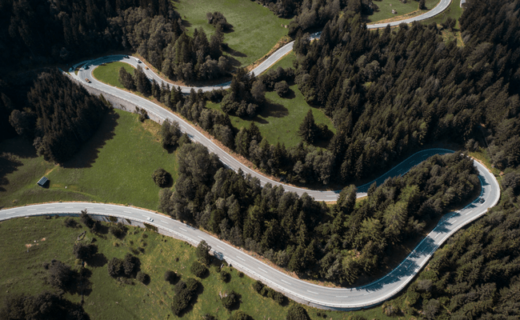Oh my goodness, people. This move is finally starting to feel real! Just a few weeks ago, making the move to Oregon sounded like a far off event. Now, it’s right around the corner. As someone who is hyper-aware of the environmental effects of making a cross-country move, the impact of it all has really been weighing on my mind.
Here are some of the questions I’ve been asking myself:
How am I supposed to pack all of our things without using disposables like bubble wrap?
In what world is driving a 22-foot truck 1,200 miles an eco-friendly decision?
How can I declutter and lighten the load without making the thrift store my dumping ground?
What can I do to mitigate the environmental effects of all of this?
Keeping our carbon footprint (and trash footprint) low while making the transition between our current living space and our new home in Oregon isn’t going to be easy. But I’m going to do my best!
Here’s what we’re currently doing to prepare.
Packing
We’re collecting reusable supplies
While I am a firm believer that cardboard boxes can be reused several times over, many homeowners end up buying new boxes and then throwing them away.
We’re trying to avoid this.
I saved most of the moving boxes from our trip here in 2015 and will be pulling them back out for use in May. I’m also planning to invest in a set of reusable bins, since we can assume our family will move a number of times in the future (#airforcelife).
Wherever possible, I’ll use linens and towels to wrap breakables, stash heavy items in rolling suitcases, and purchase upcycled, biodegradable packing material like this and this to fill the gaps.
We will save, pass along, or recycle what we don’t keep
Again with the reusing… Any cardboard boxes and other packing materials that we don’t need for storage at our new place will either be saved, passed along to friends and family, or appropriately recycled.
Decluttering
We’re going to find new homes for unwanted goods
In order to pass long unwanted items, we’re going to host a joint yard sale with some of our dear friends, as well as sell larger items through Facebook Marketplace and other platforms like Craigslist.
When we resettle, we’ll make slower purchases
Before going zero waste, both Josh and I had a tendency to purchase decor items somewhat unthinkingly. In order to preserve the space we create during the decluttering process, we’re committing to making much more thoughtful purchases for our new home once we arrive.
Cleaning
We’re eating down the pantry
We’re close enough to the move that I’m starting to eat down any pantry items that I won’t be taking with us. This includes freezer items like frozen berries from last summer, sauces, and other perishables. Here’s the process we’re using!
We’re using only non-toxic, refillable cleaning solutions
We are fortunate to be able to get housekeeping staples like Castile soap and detergent in bulk at the Fort Collins Food Co-operative. I have every intention of using only these natural products to get the house in tip-top shape for the next renters.
Shipping & Traveling
We’re taking the shortest route
In order to limit our carbon footprint on the drive itself, Josh and I decided to take the most direct route possible, up through Montana. This reduces the amount of fuel needed to make the trip, and decreases the amount of time spent on the road in general.
We’re bearing the expense of a carbon offset program
Carbon offset programs help reduce the buildup of greenhouse gases by funding projects that are specifically designed to prevent carbon dioxide emissions or counterbalance them.
Curious? Here’s how to tell if the programs are legitimate. We are personally looking into these ones:
In the future, I plan to write a post that takes a deeper look at each of these programs. They are a great way to counterbalance damage done, as well as support thoughtful, pro-environment programs all over the world.
Do you have any ideas to help us make a more eco-friendly move?

